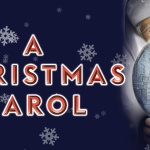Schumann and odd stuff

The Prometheus Trio: Stefanie Jacob, Timothy Klabunde, Scott Tisdel. Wisconsin Conservatory of Music photo.
From pianist Stefanie Jacob’s program notes for Schumann’s Trio No. 1 in D minor, Opus 63, which she played Monday night with the Prometheus Trio:
“Schumann further stretches the emotional tension by not resolving the figure while the music is loud, instead waiting until the emotional climax has passed and all is quiet before finally resolving from dominant to the tonic major.”
She refers to the end of the scherzo. Another way to say it: Schumann won’t let anyone go home until the shooting stops.
I bring this up because the Prometheus Trio — Jacob, cellist Scott Tisdel and violinist Timothy Klabunde — always write their own uncommonly helpful program notes. Their eloquence and insight show that they think through the music, they don’t just play it and hope for the best. Ideas guide their skills.
You could really hear that in their performance of Schumann’s technically challenging and ambitiously dramatic trio Monday night. Jacob commanded the monster piano part from a high place. Her part dictates that she maintain the pace and energy. She built enormous tension and momentum over the arc of four movements, and did that without drowning out the strings.
She, Klabunde and Tisdel communicated intimately throughout. A moment in the slow movement indicates the whole: Klabunde opened with the most ethereal theme. Instead of ending, the theme trails off into the cello, which picks it up on a sustained unison. When Klabunde rejoined, the effect was not so much of a duet in harmony as of a thickening of a single strand of melody, so in tune were they in every way.
Their playing reflected their analytical grasp of the Schumann’s forms and made it easy to map them mentally as the music unfolded. That is a great pleasure of long-form music in the classical tradition. Schumann’s trio is not merely a Romantic emotional goosing; it is also an intellectual exercise of a high order.
That clarity of structure helped a great deal with the Trio in F-sharp Minor, a 1952 work by Arno Babadjanian (1921-1983), an obscure Armenian composer of the Soviet period. This big, complicated work sounds rather like Rachmaninoff, plus a dash of Borodin, in its first two movements, and like Prokofiev at his wildest in the percussive finale.
Babadjanian deals a wild card, in the form of a supercharged, melodramatic motto, at the outset. It ends in two pounded chords followed by a long, charged silence. It’s corny and overwrought, but somehow pretty cool at the same time. It reappears to top off both big climaxes of the intense opening movement. Babadjian wove it ingeniously into the finale, a juggernaut and lurches fitfully ahead in anvil-plant rhythms that are repetitive yet jolting in their alternating meters and strong accents.
The dreamy slow movement abounds with gorgeous tunes, starting with a violin reverie not so different in spirit from Schumann’s. Klabunde lavished an exquisite delicacy on Babadjian’s opening melody and cast a spell upon us. After the slow movement reaches a rather modest climax, the music seems to pause and linger. The Prometheans lingered long enough for us to realize that we were hearing that fierce motto, but in amazingly transformed into tranquil gentility.
They opened with another oddity, Mozart’s Piano Duet in F, arranged for trio in 1983 by one John Cooley, an English water engineer who did this sort of thing as a hobby. The first movement left me wondering why on earth!? The piano music did not lie at all well on the stringed instruments, and the percussive nature of the melodies hampered group ensemble and rhythm. But the second and third won me over; their melodies are more lyric and congenial to strings. The second movement, especially, overflows with some of the loveliest Mozart tunes this side of The Marriage of Figaro, and Klabunde and Tisdel made them sing.
Anyway, some French cellist arranged these etudes for trio, and Jacob, Tisdel and Klabunde played one. Nothing to it: Two ideas play out in succession, each as a three-part canon with some simple chords in support. Like Row Your Boat, only slow and charming. Very charming.
This program is the last of the Prometheus season at the Wisconsin Conservatory of Music, where the group is in residence. The group will repeat it at 7:30 p.m. Tuesday, April 24, in the same intimate hall. $22 general admission, $12 students; Call 414 276-5760 to order. Valet parking $5.























Thanks, Tom!!
having missed the concert, I appreciate the style of this review, which gives a full narrative of the event. Prometheus is always a banquet. They also faithfully preserve a certain ethic in chamber music playing which doesn’t generally get an airing–this being unquestionably conservative and socially non-intrusive, even defiantly baseline in its restraint and which identifies with friendly music taking place in small, graceful settings, the extreme opposite of take-no-prisoners-conquest-mode. It is a way to savor the composition as a singular item without ever having to fear that one is ever under the spell of, and led down paths of raw perdition from errant, arcane–even trailblazing–platform theatrics which can occur when musicians become unbridled. It takes courage to deny oneself this way when there are so many opportunities right and left in any given piece to invent on, lift off of, and, in the worst case, aggrandize oneself on.
Tom, look what I just found: Pedal Piano in action!!
Stefanie
http://www.youtube.com/watch?v=7QUPBZu9vbI&feature=youtu.be